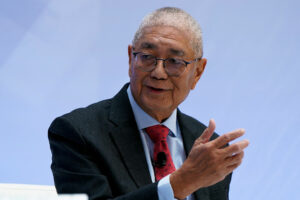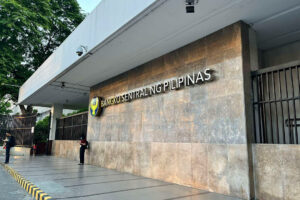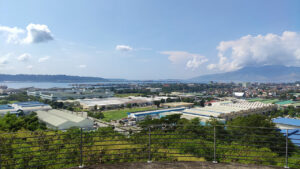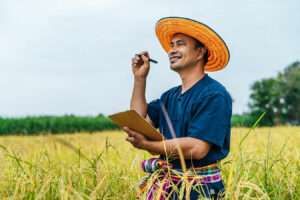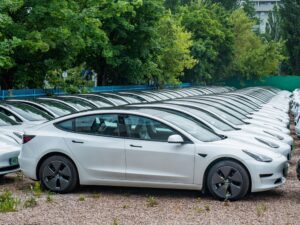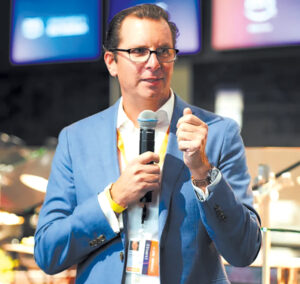(This column is based on the speech delivered by the author at the Italian Chamber of Commerce during the Philippines’ Subic-Clark Business Conference on July 17.)
At a time when the global economy is in flux — when supply chains are shifting and sustainability is a baseline, not a bonus — the Philippines stands at a pivotal crossroads. The question before us is not whether we can grow. We are already the fastest-growing economy in one of the world’s fastest-growing regions. The question is: Can we transform?
THE TWIN ENGINES OF GROWTHIf we want to enter a virtuous cycle of sustained, inclusive growth, we must build — not just consume. We must do so by fully embracing the manufacturing sector and empowering our micro-, small-, and medium-sized enterprises (MSMEs). These two forces — large-scale industry and agile, homegrown businesses — are not mutually exclusive. They are the twin engines of national prosperity. Currently, they are under-leveraged.
For decades, our economy has leaned heavily on services and remittances. While these sectors have generated stability, they have not built the productive backbone needed to move up the global value chain. We continue to export minerals instead of electronics, bananas instead of food brands. The value created abroad from our raw materials far exceeds what we capture at home.
This has to change. Manufacturing is not just about physical output. It creates jobs for every skill level, drives technological innovation, and forges deep links to both domestic suppliers and global markets. It is the engine that powers middle-class expansion and economic self-sufficiency.
The good news? We have a model playbook — and it has been tested across the ASEAN. Malaysia did not stop at palm oil extraction; it built an ecosystem around value-added production, chemicals, and consumer goods. Thailand linked farmers to food tech clusters and created globally competitive agri-businesses. Vietnam transitioned from low-end textiles to electronics manufacturing by systematically prioritizing value-added production and foreign investment.
And here is the common thread: none of them succeeded by focusing solely on large companies. MSMEs played central roles — not as marginal actors, but as integral parts of modern supply chains.
In the Philippines, MSMEs account for a staggering 99.5% of all registered businesses. Yet they often remain stuck — under-supported, under-financed, and under-connected. They struggle to access capital, adopt technology, or tap into larger markets. This shortcoming is not just a missed opportunity — it is a systemic failure that holds the entire economy back.
It is time to stop treating MSMEs as minor problems to manage. We must start seeing them as the key to unlocking broad-based industrial transformation.
LABORATORY OF PROGRESSAnd there is no better place to lead that transformation than the Subic-Clark region.
This region is already a living laboratory of what is possible when infrastructure, innovation, and investment converge. With its deep-water port in Subic, international airport in Clark, and seamless connections via SCTEX and NLEX, it is a logistical powerhouse. Soon, the planned Subic-Clark-Manila-Batangas Railway initiative will cut costs and connect key economic zones across Luzon.
But logistics is only part of the story. Subic-Clark is home to over 2,500 enterprises spanning electronics, food processing, shipbuilding, logistics, and advanced manufacturing. It is a hub for both domestic businesses and foreign direct investors — and increasingly, Filipino entrepreneurs are taking the lead and forming joint ventures. Local MSMEs are supplying parts, managing logistics, packaging food, and embedding themselves into high-value supply chains.
What sets Subic-Clark apart is not just its geography, but its ambition. The region is actively positioning itself as one of Asia’s first carbon-neutral industrial corridors by 2040. Battery manufacturing, EV assembly, and renewable energy projects are already in motion. In an era when ESG standards are shaping trade policy and consumer demand, Subic-Clark is not catching up — it is getting ahead.
SCALING SUCCESS NATIONWIDEHowever, to replicate this success across the nation, we need more than just zones and infrastructure. We need a strategy. A national, actionable, urgent strategy.
First, we must build value-adding agro-industrial clusters in regions rich in rice, fruits, seafood, and minerals. Instead of exporting raw goods, we should focus on producing processed fruits, ready-to-eat meals, herbal extracts, healthy snacks, and branded foods. Shared facilities — like maker labs, sterilizers, cryogenic dryers, and packaging plants — must be made accessible to MSMEs and cooperatives so they can meet global standards.
Second, we need to supercharge MSME empowerment. That means easy access to capital via loans, grants, and credit guarantees. It means digital tools — like point-of-sale systems, inventory apps, e-commerce platforms, and cloud accounting — all made affordable and accessible. It means institutionalized mentorship programs that organize MSMEs into clusters and connect them to large firms and research institutions.
Third, we must reform with purpose. Registration and permitting should be fast, online, and uniform across regions. Regulations must be harmonized to eliminate contradictory rules at the national and local levels. Bureaucracy must be streamlined to check endless delays.
Fourth, we must invest — aggressively — in skills and innovation. Technical and vocational training in fields, such as agro-processing, robotics, logistics, and AI, must be expanded. Public-private partnerships should drive research in food tech, packaging innovation, and sustainable manufacturing. We need more maker labs, more incubation centers, and more innovation hubs — especially outside Metro Manila.
Fifth, we must strengthen market access. MSMEs require support in obtaining certifications, such as ISO, HACCP, Halal, and Kosher. They need help entering digital marketplaces, joining global trade fairs, and branding their products for export. “Made in the Philippines” should be known as a mark of quality, sustainability, and innovation.
A CALL TO ACTIONWe already have the fundamentals: a hardworking, trainable workforce; strategic geography; improving infrastructure; and a business community ready to lead. What we need now is execution — bold, decisive, and inclusive.
To MSMEs: seize the incentives, tools, and platforms. Organize into clusters. Move up the value chain. The time to grow is now.
To Filipino entrepreneurs: Partner up. Build scale. Compete in the local market against imported consumer goods and compete with the best in the international market.
To policymakers: eliminate red tape, champion science, and protect long-term policy continuity. Enable growth, rather than just regulating it.
And to foreign investors: the Philippines is not just open for business. We are ready for partnership. Come here to co-build, co-invest, and co-innovate.
Imagine a future where Subic-Clark is one of many thriving industrial corridors — Where Filipino MSMEs are recognized not only for their resilience but also for their excellence. Where our exports are not commodities, but branded, high-value products. Where our students learn robotics, supply chain design, alongside agriculture and food technology. Where we are not defined by what we lack — but by what we build, export, and lead.
That future is within reach. But only if we act — with purpose, with urgency, and with belief in our own potential.
Let us build a Philippines that manufactures.
Let us build a Philippines that competes.
Let us build a Philippines that thrives.
Alfredo E. Pascual is a former president of the Management Association of the Philippines, the former trade and industry secretary, and past president of the University of the Philippines.





